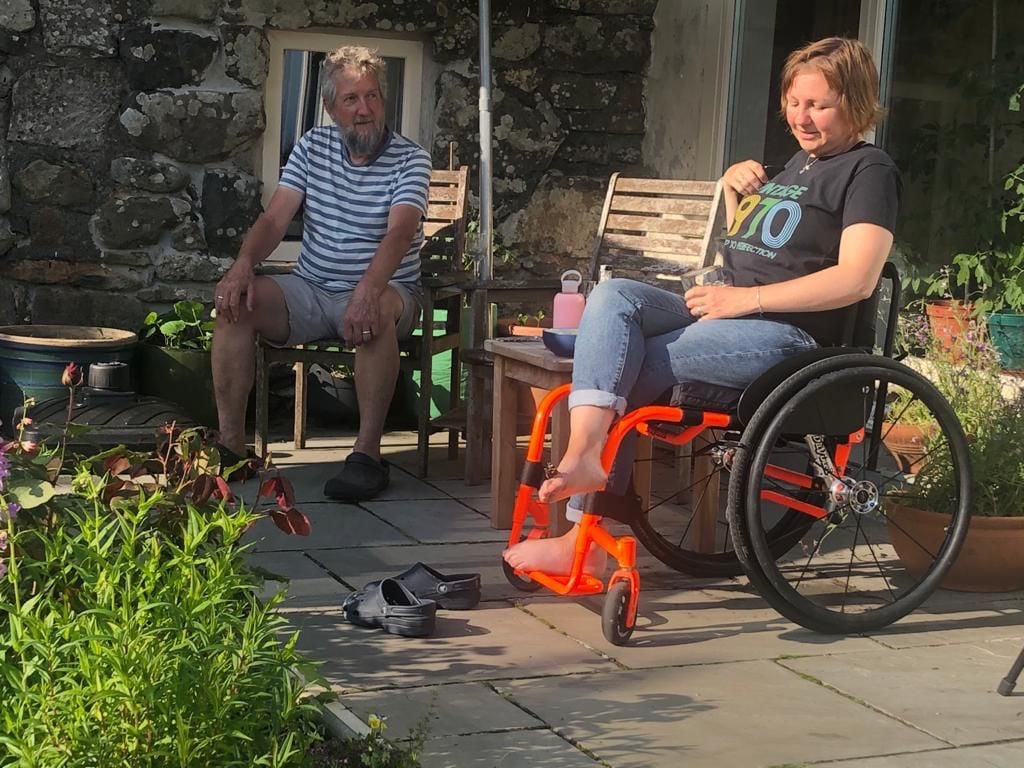“Why do we give animals a better ending than we give ourselves?” This poignant question is posed by Mary, a pseudonym for a woman living with a terminal brain tumor, as the assisted dying bill makes its way through Westminster. The bill, known as the Terminally Ill Adults (End of Life) Bill, would allow terminally ill adults with six months or less to live to end their lives with medical assistance. For Mary, who wishes to remain anonymous for her child’s sake, the bill represents a deeply personal issue.
The bill recently passed its third reading in the House of Commons and is now awaiting its second reading in the House of Lords. With the Lords generally reluctant to block bills from elected MPs, and analysis suggesting broad support, the bill could become law as early as 2029. Mary, facing limited hospice options in north Powys, is contemplating an assisted death due to the lack of feasible care options near her family.
Challenges in Palliative Care
Mary’s situation highlights broader issues in palliative care across rural Wales. Despite the Welsh government’s £8 million investment in palliative care over the past two years, hospices remain largely dependent on donations. In Ceredigion, for example, there are no hospices, and care is primarily community-based. This lack of infrastructure leaves many patients without adequate support, as evidenced by a Marie Curie report revealing that many die in pain without necessary care.
“At the moment, people in Wales are being failed in palliative care,”
noted a report from Marie Curie, underscoring the urgent need for improvements. Patients often face difficulties accessing medication outside regular hours and rely heavily on emergency care, indicating insufficient community support.
Ethical and Practical Concerns
The proposed bill has sparked ethical debates, particularly concerning the role of medical practitioners in assisted deaths. While the bill permits discussions between doctors and patients about assisted dying, it does not mandate them. Dr. Jones, a pseudonymous NHS doctor in Ceredigion, expressed discomfort with the responsibility of determining when a patient has six months to live, citing the current inadequacies in palliative care.
“What a horrible power to be given, but also maybe a gift?”
Dr. Jones remarked, reflecting the complex emotions surrounding the issue. The doctor emphasized the need for resilience and expertise in making such decisions, highlighting the moral and philosophical support for assisted dying but practical hesitations due to existing healthcare disparities.
Political and Legislative Implications
The bill’s progress has also raised political concerns. Liz Saville-Roberts, Plaid Cymru Westminster leader, criticized the decision not to allow the Senedd its own vote, calling it “regrettable.” She stressed the importance of devolved health responsibilities, fearing that assisted dying might become a private sector service in Wales.
Meanwhile, the bill’s criteria for assisted death have been scrutinized. It requires two independent medical professionals to assess the patient’s mental, physical, and social readiness, with safeguards against coercion. However, the removal of a judicial approval clause has decreased its popularity among some MPs.
Personal Stories and Broader Impact
Personal stories like that of Louisa Eastland, who traveled to Switzerland for an assisted death due to her secondary progressive MS, illustrate the human impact of the debate. Louisa’s story, captured in a documentary, highlights the emotional and logistical challenges faced by those seeking assisted death abroad.
“I should be able to die in this country when I’m more ill,”
Louisa stated in the film, emphasizing the need for change in UK laws. Her experience underscores the trauma of having to leave home to die, a sentiment echoed by filmmaker Ewan Atkinson, who documented her journey.
As the bill continues to progress, it raises significant questions about the future of end-of-life care in Wales and the UK. The debate over assisted dying highlights the urgent need for improvements in palliative care and the ethical complexities of legislating such deeply personal decisions.
 New Study Reveals Potential Flaws in Heart Disease Testing Guidelines
New Study Reveals Potential Flaws in Heart Disease Testing Guidelines Eko Health’s AI Heart Detection Gains CMS Approval, Boosting Access
Eko Health’s AI Heart Detection Gains CMS Approval, Boosting Access White House Adviser Confident in Passing Trump’s Tax Bill Amid Economic Concerns
White House Adviser Confident in Passing Trump’s Tax Bill Amid Economic Concerns Are Plastics in Your Kitchen a Hidden Health Hazard?
Are Plastics in Your Kitchen a Hidden Health Hazard? Mediterranean Marine Heat Wave Fuels Record-Breaking European Heat
Mediterranean Marine Heat Wave Fuels Record-Breaking European Heat